This article was co-authored by Tu Anh Vu, DMD and by wikiHow staff writer, Hannah Madden. Dr. Tu Anh Vu is a board certified dentist who runs her private practice, Tu's Dental, in Brooklyn, New York. Dr. Vu helps adults and kids of all ages get over their anxiety with dental phobia. Dr. Vu has conducted research related to finding the cure for Kaposi Sarcoma cancer and has presented her research at the Hinman Meeting in Memphis. She received her undergraduate degree from Bryn Mawr College and a DMD from the University of Pennsylvania School of Dental Medicine.
This article has been viewed 262,576 times.
Ouch! Just cut your tongue? Whether you accidentally bit it or snagged it on something sharp, this uncomfortable injury isn’t fun to deal with. Fortunately, a cut tongue is relatively common, and most cuts heal on their own in just a couple of days. In this article, we’ll tell you how to give yourself first aid to stop bleeding and promote healing. We’ll also give you the best techniques to care for your cut tongue and heal it fast. To feel better and minimize pain and discomfort, read on.
Things You Should Know
- Wash your hands and rinse your mouth with water. Apply pressure with gauze to stop the bleeding.
- To heal your tongue, rinse with salt water twice a day and suck on an ice cube for 20 minutes at a time.
- Eat soft foods to avoid irritating your tongue.
- See a doctor if you think your cut is infected or you can’t stop the bleeding on your own.
Steps
First Aid
-
1Wash your hands or put on gloves. When you get a cut inside of your mouth, there’s a potential for infection. Before touching your mouth, wash your hands with soap and water for at least 20 seconds. Pat your hands dry and put on a pair of clean disposable gloves if they’re available.[1]
- If you don’t have gloves around, it’s not the end of the world. Just make sure that your hands are completely clean before touching your wound.
-
2Rinse your mouth with water. Rinsing will help you see the injury and wash away any blood. Use lukewarm water to swish out your mouth, then spit it into the sink.[2]
- Avoid removing anything that is stuck in the cut, such as a fish bone or a piece of glass. Instead, stop rinsing immediately, cover the cut with a piece of wet gauze, and seek medical attention.
Advertisement -
3Apply light pressure with clean gauze. Using pressure will help stop the bleeding inside of your mouth. Grab a piece of gauze or a clean cloth and hold it against your cut. Don’t remove the gauze or cloth until your tongue stops bleeding.[3]
- If the bleeding doesn’t stop, continue to place new gauze or towels on the cut until it stops or you can get medical attention.
-
4Put an ice cube wrapped in a towel on the cut. An ice cube will help reduce swelling and stop bleeding. Grab an ice cube and wrap it in a clean towel, then place it on your cut inside your mouth and hold it there for a few seconds. This will constrict the blood vessels to slow or stop the bleeding.[4]
- Remove the ice cube if it is very painful or gets too cold to prevent burns on your tongue.
Home Care
-
1Gargle saltwater twice a day. Salt is a natural antiseptic that can kill bacteria.[5] Mix 1 tsp (5 g) of salt with warm water and gargle it twice a day to promote healing and soothe discomfort on your tongue.[6]
- It’s a great idea to swish with saltwater after meals. This will help remove any food particles from the cut on your tongue.
- Don’t want to make your own salt water? Buy a saline solution instead.
-
2Suck on an ice cube for 20 minutes. A cold ice cube will help reduce swelling and promote healing. Once a day, suck on an ice cube or eat a popsicle for about 20 minutes at a time. Try to hold the ice cube or popsicle over the cut on your tongue as much as possible.[7]
- You can also use a cold, wet washcloth.
-
3Eat soft foods that are easy to chew. As your tongue heals, you may feel mild discomfort as you eat. Pick foods like yogurt, mashed potatoes, applesauce, and smoothies that won’t hurt your tongue to keep yourself nourished.[8] You might also try:
- Eggs
- Ground and tender cuts of meats
- Creamy nut butters
- Canned or cooked fruit
- Steamed or well-cooked vegetables
- Rice
- Pasta
-
4Avoid irritating foods and beverages. Salty, spicy, and dry foods can make the pain from a cut on your tongue even worse. Alcoholic and caffeinated drinks can also increase your discomfort. Staying away from these foods and beverages can promote healing and ease pain.[9]
-
5Drink plenty of water. Dry mouth can make any pain or discomfort on your tongue worse. Try to drink around 8 glasses of water per day, or more if you’re an active person. Drinking a lot of fluids throughout the day can minimize pain and promote healing to relieve discomfort much faster.[10]
- Drink warm water with a few drops of lemon or lime if this is more comfortable.
-
6Take a pain reliever.[11] You may have discomfort or swelling on your tongue. Try a pain reliever like ibuprofen or acetaminophen to ease your pain and minimize swelling.[12]
- Always follow the dosage instructions on the packaging.
When to See a Doctor
-
1Seek emergency care if the wound won’t stop bleeding. If your tongue is cut because of blunt force trauma, your wound may need stitches. If you can’t control the bleeding on your own or you’re losing a lot of blood, seek emergency care.[13]
- If you believe you are in shock, seek medical care right away. Symptoms of shock include feeling cold, shaking uncontrollably, or feeling dizzy and confused.
- Wounds across the tip of the tongue almost always require stitches.
-
2Take your child to the doctor if they are younger than 1 year old. Young children may need more serious care than older children and adults. If your baby has a cut in their mouth, take them to the doctor to get them checked out.[14]
- If you aren’t sure whether or not to bring your child in, call an advice nurse and tell them about your child’s symptoms. They’ll let you know whether or not you need to seek medical care.
-
3See your doctor if you believe your cut is infected. If your pain or swelling increases after 48 hours, there’s a chance that your wound is infected. Head to the doctor and tell them about your symptoms and your pain levels. If your cut is infected, your doctor will prescribe you antibiotics.[15]
- Always follow the care instructions given to you by your doctor, and take the full round of antibiotics if you’re prescribed them.
Expert Q&A
Did you know you can get premium answers for this article?
Unlock premium answers by supporting wikiHow
-
QuestionCan my teeth cause a cut on my tongue?
 Jurdy Dugdale, RNJurdy Dugdale is a Registered Nurse in Florida. She received her Nursing License from the Florida Board of Nursing in 1989.
Jurdy Dugdale, RNJurdy Dugdale is a Registered Nurse in Florida. She received her Nursing License from the Florida Board of Nursing in 1989.
Medical Review Board
References
- ↑ https://www.chop.edu/conditions-diseases/cuts-and-wounds-mouth-and-lips
- ↑ https://www.healthychildren.org/English/health-issues/injuries-emergencies/Pages/First-Aid-for-Bites-or-Cuts-to-a-Childs-Tongue-or-Lip.aspx
- ↑ https://www.healthychildren.org/English/health-issues/injuries-emergencies/Pages/First-Aid-for-Bites-or-Cuts-to-a-Childs-Tongue-or-Lip.aspx
- ↑ http://woundcaresociety.org/heal-cuts-mouth
- ↑ Tu Anh Vu, DMD. Board Certified Dentist. Expert Interview. 10 April 2020.
- ↑ http://woundcaresociety.org/heal-cuts-mouth
- ↑ https://palsmds.com/Mouth-Injury
- ↑ https://palsmds.com/Mouth-Injury
- ↑ http://woundcaresociety.org/heal-cuts-mouth
- ↑ http://woundcaresociety.org/heal-cuts-mouth
- ↑ Tu Anh Vu, DMD. Board Certified Dentist. Expert Interview. 10 April 2020.
- ↑ https://palsmds.com/Mouth-Injury
- ↑ https://www.healthychildren.org/English/health-issues/injuries-emergencies/Pages/First-Aid-for-Bites-or-Cuts-to-a-Childs-Tongue-or-Lip.aspx
- ↑ https://palsmds.com/Mouth-Injury
- ↑ https://palsmds.com/Mouth-Injury
About This Article
To heal a cut on your tongue, rinse your mouth with lukewarm water for a few seconds to clear away any blood and debris around your tongue. If the cut it still bleeding, apply light pressure with a clean bandage or piece of gauze until it stops. Alternatively, wrap an ice cube in a cloth and hold it against your cut, which will help constrict the blood vessels and stop it from bleeding. Once your tongue has stopped bleeding, rinse your mouth with a non-alcoholic mouthwash twice a day to get rid of any bacteria. You can also gargle with salt water twice a day, since salt is a natural antiseptic. For more tips from our Medical co-author, including how to minimize pain while your tongue heals, read on!
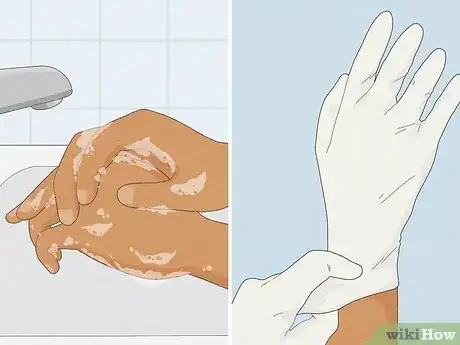
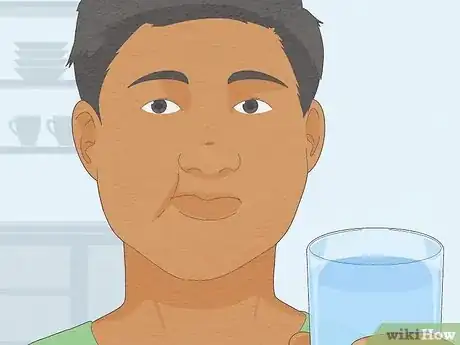
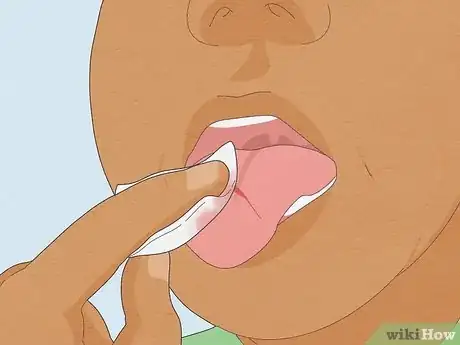
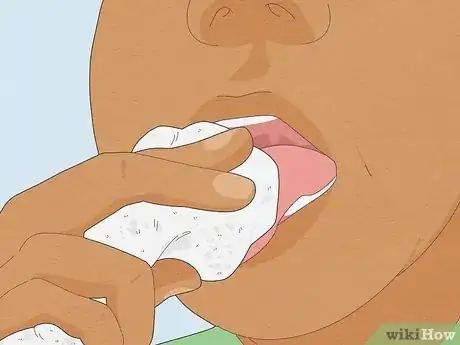
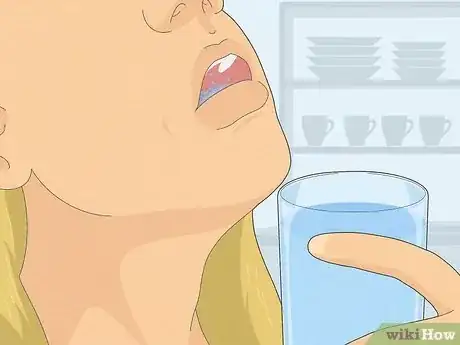

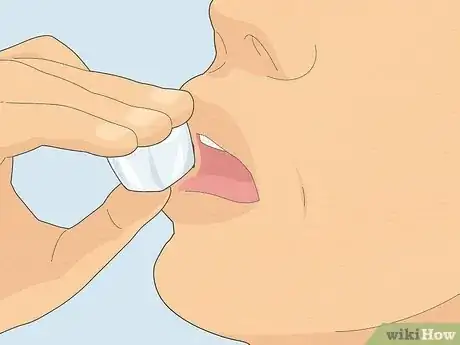
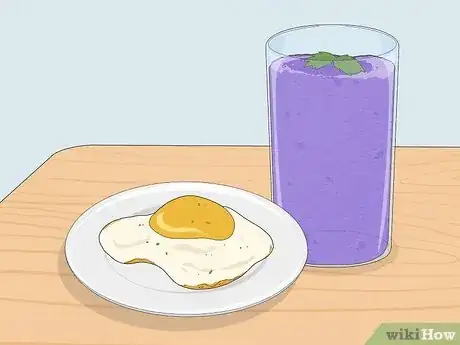
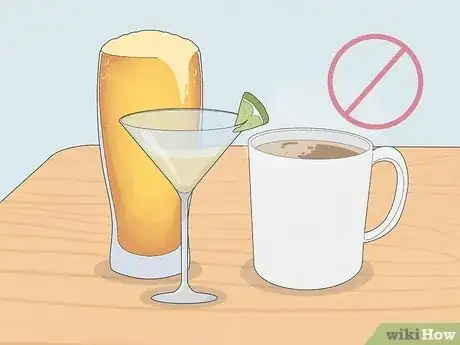
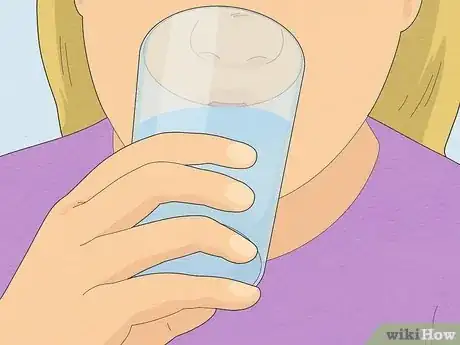
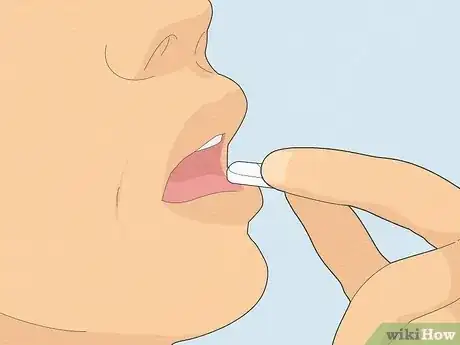
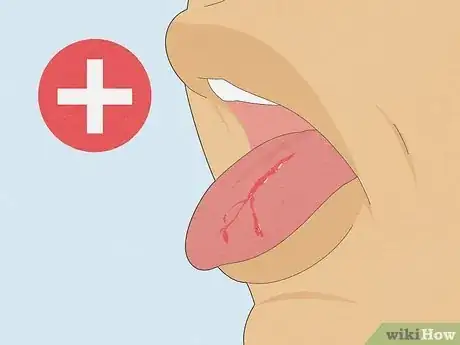
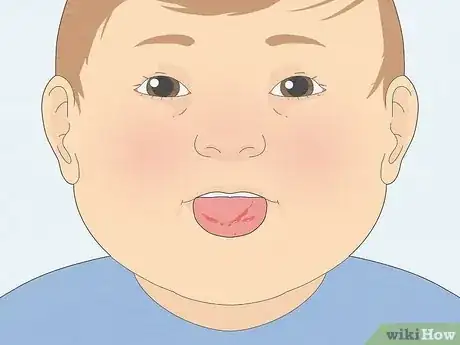
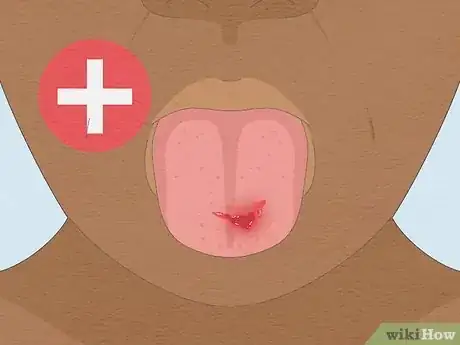

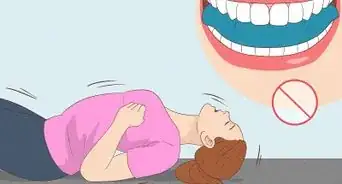
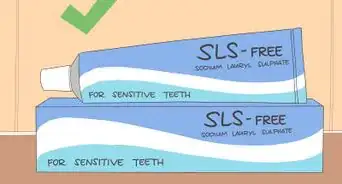
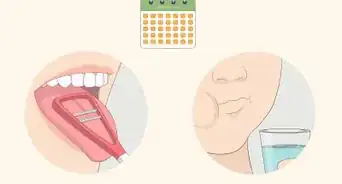

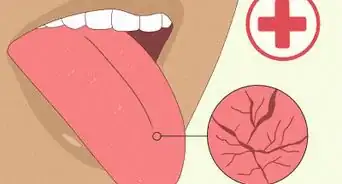
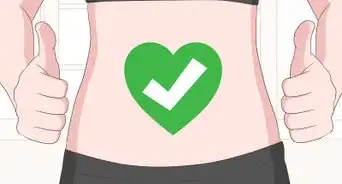

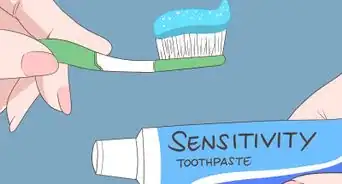
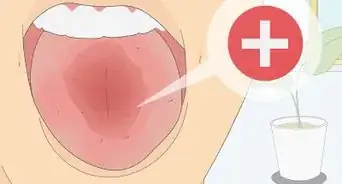

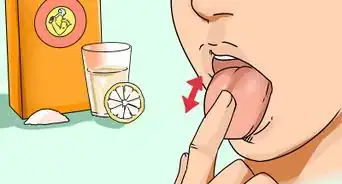
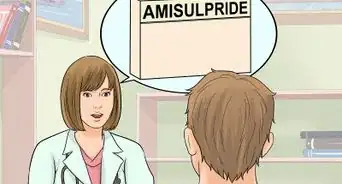
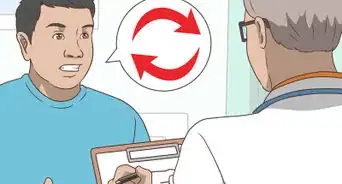








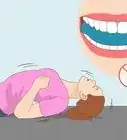
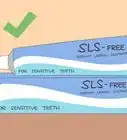
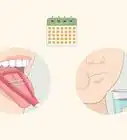



































Medical Disclaimer
The content of this article is not intended to be a substitute for professional medical advice, examination, diagnosis, or treatment. You should always contact your doctor or other qualified healthcare professional before starting, changing, or stopping any kind of health treatment.
Read More...